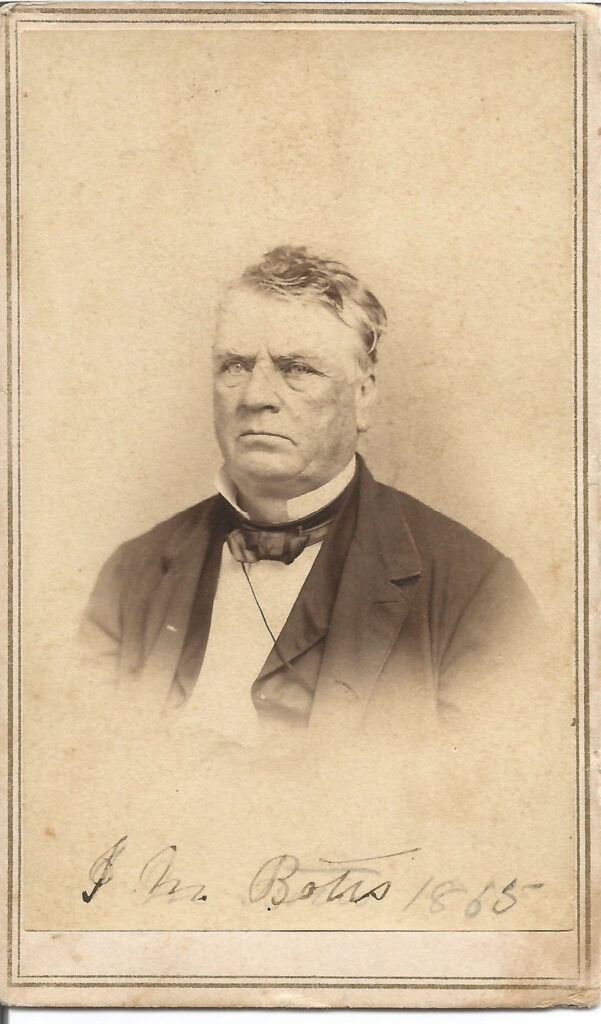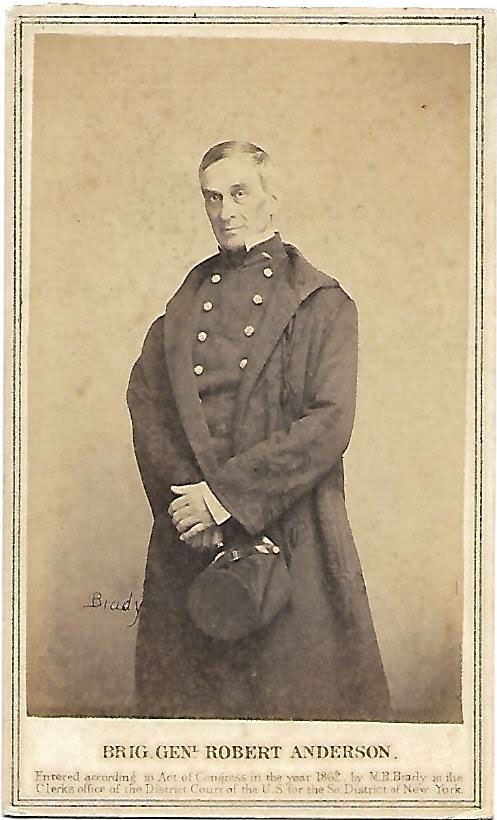Section #22 - The Southern States secede and the attack on Ft. Sumter signals the start of the Civil War
Chapter 290: Threats To Both Washington And Sumter Become Imminent
April 8-9, 1861
The Virginian John Minor Botts Warns Lincoln Of A DC Plot

As Davis is readying his attack of Ft. Sumter, Lincoln is clinging to the hope that the Virginia Convention will vote to stay in the Union and that war can be avoided.
On April 8 ex-Whig Congressman and Virginia Unionist, John Minor Botts, visits the White House after learning that a fleet has set out to relieve Ft. Sumter. He comes to plead with Lincoln to change his mind, saying that the move will lead to war.
Lincoln responds with the same emotional message he used with John Baldwin on April 4.
I am no war man. I want peace more than any man in this country, and will make greater sacrifices to preserve it than any other man…
Botts is convinced of Lincoln’s sincerity, and returns the following day to warn the President that southern forces are planning to attack and subdue Washington.
Lincoln immediately sends Botts to see General Scott who stiffens the city’s defenses with additional troops from New York and Pennsylvania.
April 10-11, 1861
Anderson Sees Signs Of An Imminent Attack

On April 10, General Beauregard receives the order from Jefferson Davis to bombard Ft. Sumter when his preparations are complete.
From the parapet of the fort, Major Anderson spots a flurry of increased activity at the batteries which envelop him and orders his men to man their guns.
Time seems to stand still on both sides until 4pm on April 11 when a dingy arrives at Sumter under a white flag bringing three representatives from Beauregard: his military aide-de-camp, Lt. Colonel Alexander Chisolm, Captain Stephen D. Lee, and the spokesman for the party, ex Senator James Chestnut.
Anderson greets Chestnut, who presents a demand that the fort be evacuated post haste. He also outlines the terms for departure: all men will be granted paroles and returned by ship to Northern ports; they will be allowed to carry their arms and personal possessions with them; and may salute the flag as they depart.
The Major asks for a moment to confer with his officers, who are unanimous in rejecting the offer.
Anderson returns and delivers the news to Chestnut, saying:
I will await the first shot, and if you do not batter us to pieces, we shall be starved out in a few days.
The last part of this reply captures Chestnut’s attention, as a possible way to avoid being labeled the aggressor in a civil war. Once back in Charleston, he wires Anderson’s comment to Montgomery for their reaction. At 9:20pm word comes back from War Secretary Leroy Walker:
Do not desire needlessly to bombard Fort Sumter.
This comes with an instruction to return to the fort and ask Anderson if he would state a precise date and time for a peaceful departure. At 11pm that night Chestnut is back at Sumter seeking an answer.
When Anderson says that he will hold out four more days, until April 15, when his food runs out, an exasperated Chestnut heads back to report the disappointing news to Davis.